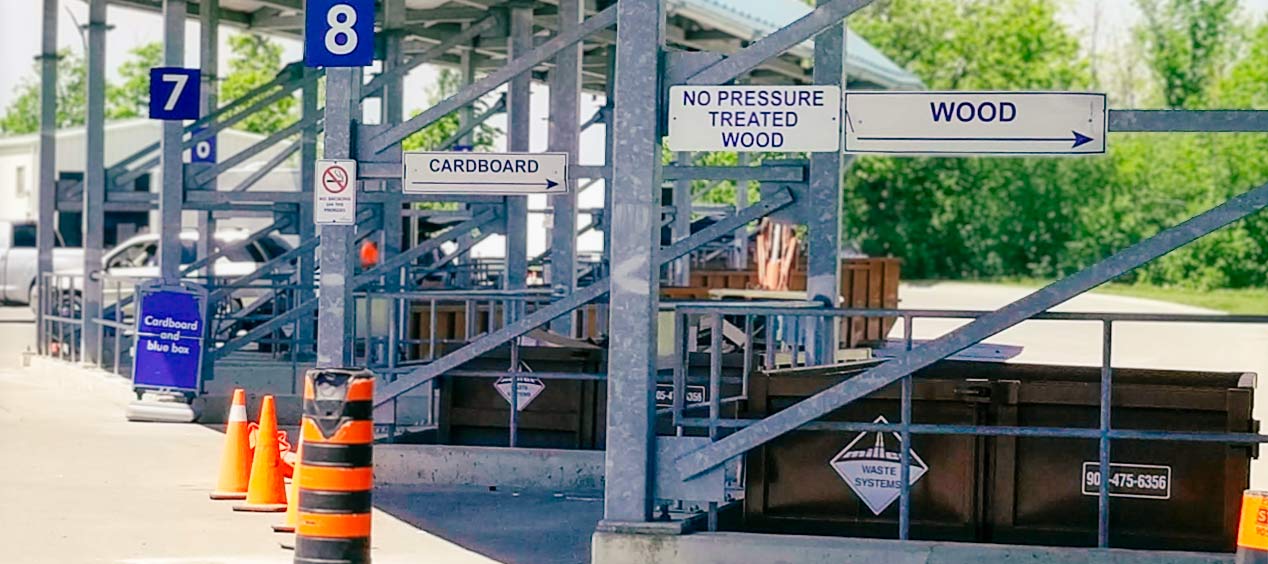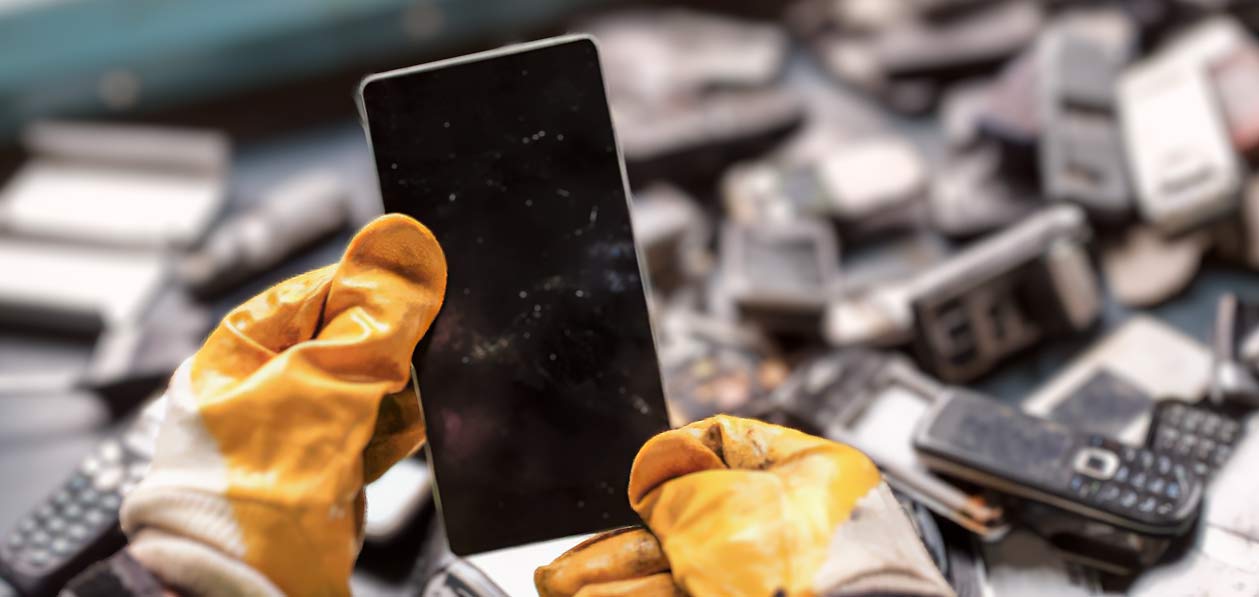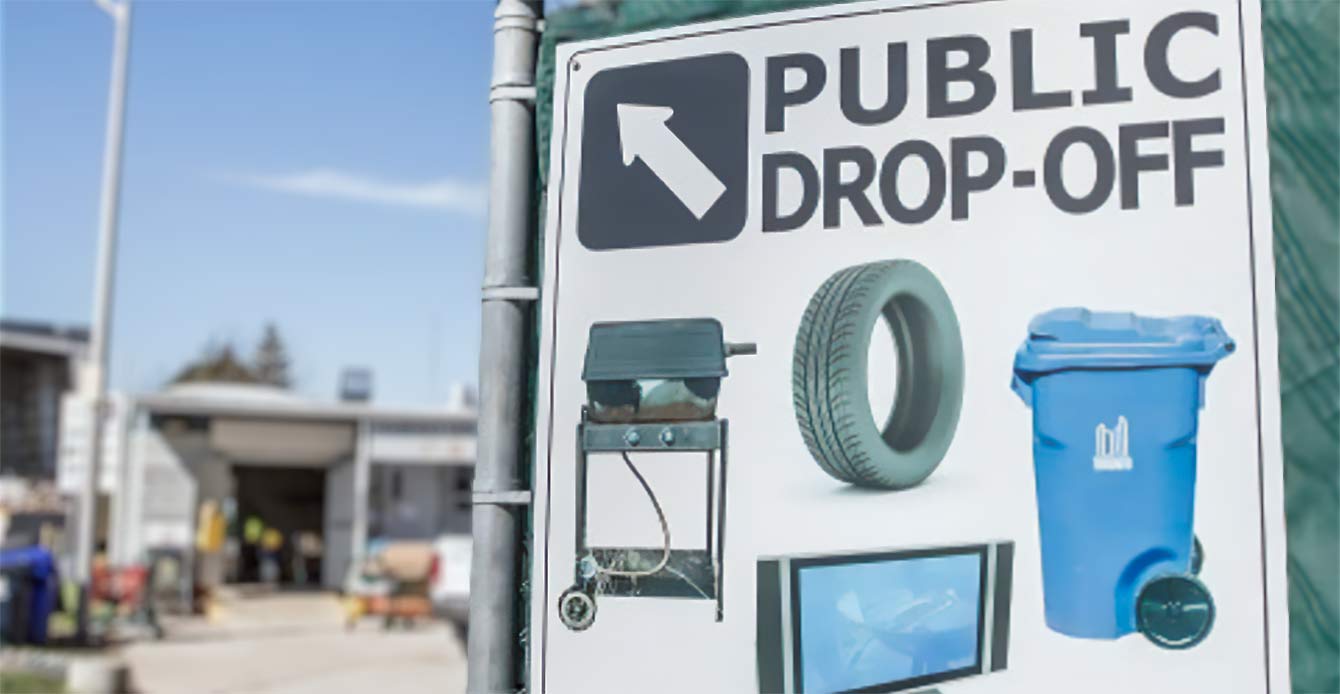Recycling Centres & Drop-Off Depots in Ontario
Too many Ontarians still ask the same question at the bin: ‘Where exactly does this go?’ From sauce-covered plastic to spent batteries, we’ve all had that moment of confusion. That’s why we reviewed and ranked Ontario’s best recycling centres – to show what’s working in 2026, where to go, and what to bring.
Where to Make the Drop: 7 Ontario Centres Ranked
If you’ve ever searched “drop off used batteries” or “electronic recycling bins near me,” you know that not all drop-off locations offer the same experience. We reviewed the most-used facilities in Ontario to see what’s free, what’s not, and how easy the process actually is.
- Toronto Household Hazardous Waste Drop-off Depot – ★ 4.9
- McCleary Court Community Environmental Centre – ★ 4.5
- Scarborough Transfer Station / Drop-off Depot – ★ 4.4
- Windsor Public Drop Off Depot – ★ 4.3
- Waste Resource Innovation Centre – ★ 4.2
- St. Thomas Community Recycling Centre (CRC) – ★ 3.9
- Victoria Park Transfer Station – ★ 3.8

Toronto Household Hazardous Waste Drop-off Depot – ⭐ 4.9
- Location: 400 Commissioners Street, Toronto
- Hours: 7 a.m. – 6 p.m. (Mon–Fri), 7 a.m. – 12:30 p.m. (Sat)
- Free services: Hazardous waste, electronics, batteries
“Excellent service! Always helpful. I missed the drop‑off point of electronics, driving around the facility. So some guy ran out in the rain to show me the place! Amazing people.”
— Mykola Swarnyk (Google user)
Located within city limits, this site makes it easy to drop off used batteries, old electronics, and hazardous waste like paint or propane tanks. It consistently ranks highest for its friendly staff, smooth traffic flow, and free drop-off locations for household hazardous waste. Multiple reviewers noted how easy it was to dispose of items they had previously stored for years.
McCleary Court Community Environmental Centre – ⭐ 4.5
- Location: 130 McCleary Court, Toronto
- Hours: 7 a.m. – 6 p.m. (Mon–Fri), 7 a.m. – 12:30 p.m. (Sat)
- Highlights: Household chemicals and disposal units are accepted
“Excellent service. I went the first time on Sunday morning and there wasn’t lineup. The people working there are very helpful. Thank you guys.”
— Mulugeta Soressa (Yelp review)

Located in Toronto, McCleary Court accepts everything from tires to fluorescent bulbs. As a community recycling centre, it’s praised for helpful signage and clearly marked disposal units. Visitors told us they appreciated the streamlined process when dropping off chemicals or electronics.
Scarborough Transfer Station / Drop-off Depot – ⭐ 4.4
- Location: 1 Transfer Place, Toronto
- Hours: 7 a.m. – 6 p.m. (Mon–Fri), 7 a.m. – 12:30 p.m. (Sat)
- Best for: General waste, yard waste, recyclables
“Came during off hours around 4 pm and thankfully the place was not busy. All the staff were courteous and guided us for the directions and instructions of said items.”
— Moses B.
While some users warn about weekend lineups, Scarborough’s drop-off depot offers wide lanes, staff direction, and good signage. Many use it as their go-to recycling station for both regular waste and items requiring hazardous waste disposal.
Windsor Public Drop Off Depot – ⭐ 4.3
- Location: 3560 North Service Road East, Windsor
- Hours: 8 a.m. – 4:45 p.m. (Mon–Sat)
- Free Items: Electronics, scrap metal, select paint
“We use this facility a lot, and the staff are always courteous. It’s easy to maneuver and I love how if I need a bit of spray paint I can go to the chemical drop to pick some up free. It’s always busy on weekends so be ready for a bit of a wait.”
— Tracy Chapman
In Windsor, the local depot offers free disposal of electronics, tires (up to 10 per day), and scrap metal. They even sell compost. While users note weekend traffic can be heavy, most praise the staff and signage. This is a key drop-off location for residents searching for an electronic drop-off near me.
Waste Resource Innovation Centre (Guelph) – ⭐ 4.2
- Location: 110 Dunlop Drive, Guelph
- Hours: Tues–Fri 9 a.m. – 4:30 p.m., Sat 8:30 a.m. – 4 p.m.
- Review highlight: “Efficient and clean, but $70 for a load was steep.”
“Very expensive compared to all other recycling centres located in Waterloo, Halton and Peel region.”
— Satinderpal Singh Gill
Guelph’s flagship waste facility at 110 Dunlop Dr is modern and well-laid-out. While construction waste and certain appliances come with a fee, most household recyclables and hazardous materials are free to drop off. Reviewers did note it’s more expensive for heavier materials. Bonus: they also accept used tires and have a Canadian Tire battery recycling partnership.
St. Thomas Community Recycling Centre (CRC) – ⭐ 3.9
- Location: 3350 Victoria Park Avenue, Toronto
- Hours: 7 a.m. – 6 p.m. (Mon–Fri), 7 a.m. – 12:30 p.m. (Sat)
- Best for: Construction waste
“Really good service, and quick in and out. Not too much to worry about. The lady at the window was very helpful and kind and another man offered us brooms to clean our trailer.”
— Amer Hassan
Open to residents of St. Thomas and surrounding townships, this CRC accepts a wide range of materials, including electronics, batteries, tires, and hazardous waste on specific days. While affordable, some users reported inconsistent pricing. Still, it’s a reliable community recycling centre if you’re in the area.
Victoria Park Transfer Station – ⭐ 3.8
- Location: 3350 Victoria Park Ave, Toronto
- Public vs commercial hours: Different entry times
“Indoor recycle drop‑off is a little stinky… the puddles you need to stand in. Also watch that the weigh scale attendant properly registers you for recycle, mine logged me as garbage although I only had collapsed cardboard boxes.”
— fb 2go (from Instagram)
Primarily used by North York residents, this location handles garbage, yard waste, and select renovation materials. It also has limited hours for electronics and household hazardous waste. Some users flagged issues with wait times and payment disputes. Still, it’s a useful fallback for those looking to find alternative drop-off locations.
Ontario’s Waste System in 2026: What’s Going Where?
Today’s waste infrastructure is more segmented than it appears. Residential households account for just over 45% of all waste generated, while the rest comes from construction, industrial, and commercial sectors (Statistics Canada, 2022).
Most communities now provide access to at least one community recycling centre or designated drop-off facility per region. These include everything from electronic recycling bins to full-service hazardous waste drop zones. The catch? Services – and fees – vary depending on local funding and partnerships with RPRA (Resource Productivity & Recovery Authority).
What You Can & Can’t Drop Off or Recycle
Sorting items ahead of time can save you trouble – and potentially some fees. Below are the most common categories we’ve seen across Ontario’s drop-off facilities and community recycling centres.
| ✅ Accepted at Most Drop-Off Locations | ❌ Not Usually Accepted |
|---|---|
| Small electronics (e.g., keyboards, phones) – search: electronic drop off near me | Contaminated food containers |
| Household batteries – available at many Canadian Tire battery recycling spots | Broken ceramics, dishes |
| Tires (often up to 4–10 per visit) – used tire disposal near me | Non-program textiles (e.g., curtains, shoes) |
| Paint cans, cleaning products, propane tanks | Frozen liquids or unlabeled containers |
| Scrap metal, cardboard, and tagged appliances | Plastic wrap and packaging foam (unless noted) |
Tip from users:
“Some centres allow free drop-off for hazardous items on specific days – always check schedules before going.”
| ⚠️ Special handling required | ✅ Where to take them |
|---|---|
| Propane tanks | Certified hazardous waste disposal |
| Automotive fluids (oil, antifreeze) | Drop-off locations for household hazardous waste |
| Fluorescent light bulbs | Specialized disposal units at recycling stations |
| Mercury-containing items (e.g., thermometers) | Household hazardous waste programs in your region |
From our team:
These materials should never be placed in curbside bins. Improper disposal puts sanitation workers at risk and can contaminate soil or water. Always use designated drop-off locations.
Find Recycling Locations Near You
If you’re not near one of the 7 spots we reviewed, these tools can help:
- RPRA Drop-Off Locator – Recycling Near Me – Find recycling stations across Ontario by item and location.
- City of Toronto Drop-Off Depots – Official list of depots with maps and accepted items.
- York Region Waste Depots – See accepted materials and schedules for each location.

Top Recycling Myths Ontarians Still Believe
Some recycling myths are still surprisingly common. Here’s what we keep hearing – and why they’re wrong.
Myth 1: “All plastics are recyclable.”
Not quite. Black plastics, plastic utensils, cling wrap, and plastic film are often excluded from residential recycling programs in Ontario. Even if a container has a recycling symbol, that doesn’t guarantee it’s accepted.
Myth 2: “Electronics go in the blue bin.”
False. Old phones, keyboards, and cables do not belong in curbside blue bins. These items often contain small amounts of heavy metals or lithium batteries that require safe handling.
Myth 3: “Used batteries can go in the trash.”
Still illegal in Ontario. Batteries (even AA or AAA) must be dropped off at certified locations like tire battery recycling bins, designated community recycling centres, or household hazardous waste drop-off facilities. Throwing them in the garbage creates a real fire risk in trucks and landfills.
Myth 4: “Food containers just need a rinse – or not even that.”
Many people assume leftover food or sauce won’t affect recyclability. But it does. A greasy pizza box, a yogurt container with residue, or a foil-lidded tray can contaminate an entire batch of recyclables. Contaminated containers often get rejected and sent to the landfill.
Myth 5: “Big items like mattresses and furniture can go to the dump anytime.”
Not true for every region. Many drop-off facilities and community recycling centres have restrictions on what large items they’ll take, or they charge a fee. Mattresses, especially, often require advance booking or going to designated bulk waste events.
Not sure? Don’t guess.
Use tools like the RPRA drop-off locator or check with your local disposal unit before making the trip. Misinformation leads to contamination, and that means more of our recycling ends up in the landfill.
How to Be a Better Recycler in 2026
We’ve tested it: the biggest improvement comes from using dedicated drop-off locations rather than stuffing specialty waste into the curbside bin. Trust the signs at your local community recycling centre, and when in doubt, look it up.
Quick tips:
- Don’t assume – check accepted materials online first.
- Use search terms like “recycling center near me” or “hazardous waste disposal near me” for best results.
- Keep containers sealed and labelled when bringing hazardous waste.

Behind This Review
“From checking public complaints about recycling fees to reviewing over 800 recent Google reviews of Ontario drop-off depots, we wanted to give people real answers to everyday recycling questions. The goal? Reduce confusion, encourage safe disposal, and get more use out of the great facilities already available across the province.
Less guessing. More recycling. That’s the goal.”
Disclaimer:
We are not affiliated with, associated with, authorized by, endorsed by, or in any way connected to the previous owners of this domain or with the Orange Drop program. The information provided on this website is for informational purposes only.
FAQs About Recycling
Can I bring electronics to my local drop-off depot?
Yes, most centres accept small items like phones, headphones, and chargers. Larger electronics may need to go to a specialized site, so check ahead.
Do I have to rinse containers before recycling them?
Absolutely. Grease or food residue can contaminate the whole load. A quick rinse can keep the system running cleanly.
Where should I take old batteries or paint?
Look for community depots or hardware stores that accept them. Canadian Tire often has in-store bins for used batteries – no purchase required.
Are tires accepted for free?
Usually yes, up to a set number per visit (commonly 4 or 10). Beyond that, fees may apply or you may need to book in advance.
What happens if I toss hazardous waste in the garbage?
It can leak into soil or cause fires in collection trucks. Always look for certified drop-off facilities – it’s one of the safest ways to properly dispose of dangerous materials.
Can I recycle big items like mattresses or furniture?
Some centres allow it, but many don’t – or they charge a fee. These items often require special events or designated bulk waste days.
Is black plastic recyclable in Ontario?
Not typically. Most sorting systems can’t detect it, so it ends up in landfill. Best to avoid it when possible.
How do I know what’s accepted in my area?
Use the RPRA drop-off locator or your municipality’s website. Policies vary by region, so what works in Toronto might not apply in Guelph or Windsor.